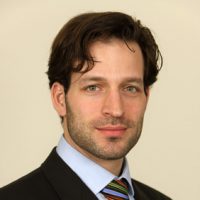Why the EU needs a Special Representative to Respond to the Arab Spring

Almut Möller
European Policy Centre
Almut Möller joined the EPC as Director for European and Global Affairs and Head of the Europe in the World programme in July 2024. She is a political scientist with professional experience in both think tanks and government. Her areas of expertise include EU institutions and politics, foreign and security policy, and multilevel governance, and she has published widely in these fields.
Prior to joining the EPC, she served as State Secretary and Plenipotentiary of the Free and Hanseatic City of Hamburg (2019-2024), representing the city state in Berlin, and at the European Union. In that capacity, she oversaw both the Berlin and Brussels representation offices and was a member of the Conference of Europe Ministers of the German Länder. She was also in charge of Hamburg's international relations, and the point of contact for the diplomatic and consular corps.
Before that, Almut was the Head of the Berlin office of the European Council on Foreign Relations (2015-2019), headed the Europe program at the German Council on Foreign Relations (2010-2015), and worked as an independent political analyst based in London (2008-2010). She started her career in think tanks as a researcher at the Centre for Applied Policy Research (C.A.P) at Ludwig-Maximilians-Universität in Munich (1999-2008).
Almut was a guest researcher at Renmin University of China in Beijing (2006), Al Ahram Center for Political and Strategic Studies in Cairo (2007), and at the American-German Institute (AGI) at Johns Hopkins University in Washington D.C. (2008).
She was a 2016-2017 participant in AICGS’ project “A German-American Dialogue of the Next Generation: Global Responsibility, Joint Engagement,” sponsored by the Transatlantik-Programm der Bundesrepublik Deutschland aus Mitteln des European Recovery Program (ERP) des Bundesministeriums für Wirtschaft und Energie (BMWi).

Cornelius Adebahr
Dr. Cornelius Adebahr was a Visiting Fellow at AICGS from October to December 2013. During his fellowship, Dr. Adebahr analyzed the transatlantic partners‘ current approach toward Iran and the country’s disputed nuclear program. Following a two-year stay in Tehran, he assessed the latest openings made by Iran’s newly elected president, Ayatollah Rouhani. In addition, he looked at ways how the United States—particularly Congress—could support a potential agreement that would see a gradual phase out of the current international sanctions. Ultimately, a compromise would have to see both sides giving up some of their more extreme demands in order to settle for the common ground around their respective core interests.
Dr. Adebahr is a political scientist and entrepreneur; he lives in Washington, DC, and Berlin, Germany. Since the end of 2000, he has been the owner of Wirtschaft am Wasserturm, a political consultancy firm. Among his clients are major company-affiliated foundations as well as not-for-profit associations and European institutions. In addition, Cornelius Adebahr has been affiliated with the German Council on Foreign Relations (DGAP) since January 2006, and is currently an Associate Fellow. He is also a columnist with the Global Policy Journal published by the London School of Economics and Political Science (LSE).
As a fellow of the Stiftung Neue Verantwortung from 2009 to 2011, Dr. Adebahr headed two research teams on “geopolitics and the financial crisis” and “raw materials strategy.” He has taught at the Willy Brandt School of Public Policy at Erfurt University and the Faculty for World Studies of Tehran University. Furthermore, from 2003 to 2011, he was a member of Team Europe, an experts’ network of the European Commission.
Cornelius Adebahr was a scholar of the European Foreign and Security Policy Studies Program of the Volkswagen Foundation, Compagnia di San Paolo, and Riksbankens Jubileumsfond as well as of the Postgraduate Program in International Affairs by the Robert Bosch Foundation and the German National Merit Foundation. He studied International Relations, Philosophy, Public Law, and International Economics in Tübingen and Paris and earned his PhD at the Free University Berlin.
The European Union and its member states continue to struggle to find a response to the Arab Spring, write former DAAD/AGI Fellow Almut Möller and Cornelius Adebahr. Past policy approaches had little impact on the area’s regimes, if anything doing more to support them than reform them. In this report for the German Council on Foreign Relations (DGAP), the authors argue that the EU should reorient its policies and utilize one of its established and successful foreign policy instruments and name an EU Special Representative for North Africa.









